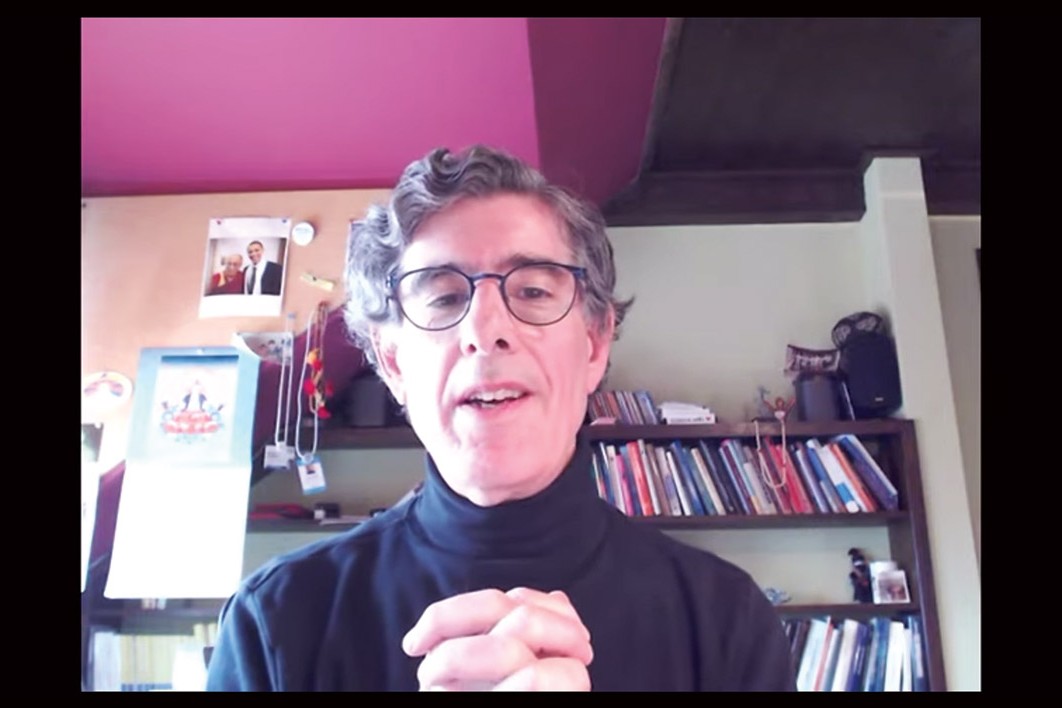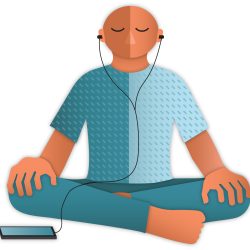Calm Is a Click Away
A video meditation series cultivates peace of mind in the pandemic.

Davidson leading a YouTube session: “Research shows that meditation can help us become more resilient and decrease our distress.” Healthy Minds Innovations
On a live YouTube broadcast, UW professor of psychology and psychiatry Richard Davidson asks viewers how they’re feeling during the coronavirus pandemic.
The chat box scrolls restlessly: “Overwhelmed.” “Uncertain.” “Exhausted.”
These responses come from Moscow, Paris, and Kathmandu, as well as cities around Wisconsin. The anxieties of the moment seem to be crashing into the broadcast.
Then Davidson begins a guided meditation. For 20 minutes, he encourages viewers to look inward, with an awareness of their own bodies; and outward, with an appreciation for others.
When Davidson brings the gentle exercise to a close, he again asks viewers how they feel. The chat box reawakens with newfound contentment: “Peaceful.” “Hopeful.” “Inspired.”
The video is part of a free YouTube series from Healthy Minds Innovations, a nonprofit that collaborates with the UW’s Center for Healthy Minds. The series advances the center’s ambitious mission: to cultivate well-being through a scientific understanding of the mind.
“During this challenging time, we feel a moral obligation to disseminate the insights and practical wisdom we’ve gleaned over the years to help people cope more effectively,” says Davidson, who directs the Center for Healthy Minds. “Research shows that meditation can help us become more resilient and decrease our distress.”
The Center for Healthy Minds conducts studies on empathy, gratitude, and other qualities of mind that affect well-being. Drawing on this research, Healthy Minds Innovations develops tools to create a kinder, wiser, more compassionate world. Since March, the YouTube series has offered live meditations by Davidson and other trainers.
As the pandemic spread, Healthy Minds Innovations saw a dramatic increase in demand for its services, which also include a Healthy Minds @Work program and a free Healthy Minds Program app.
“With the pandemic, people who had never considered meditation find themselves confronting mental health issues,” says Jocelyn Harmon, vice president of marketing for Healthy Minds Innovations. “Now that they no longer have access to their old ways of dealing with anxiety, they’re searching for other tools to guide them through an unknown situation.”
Published in the Fall 2020 issue



Comments
No comments posted yet.